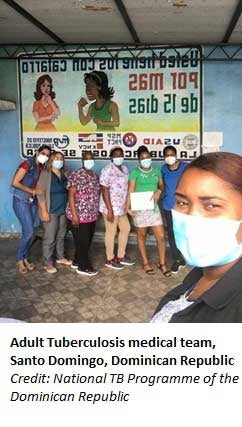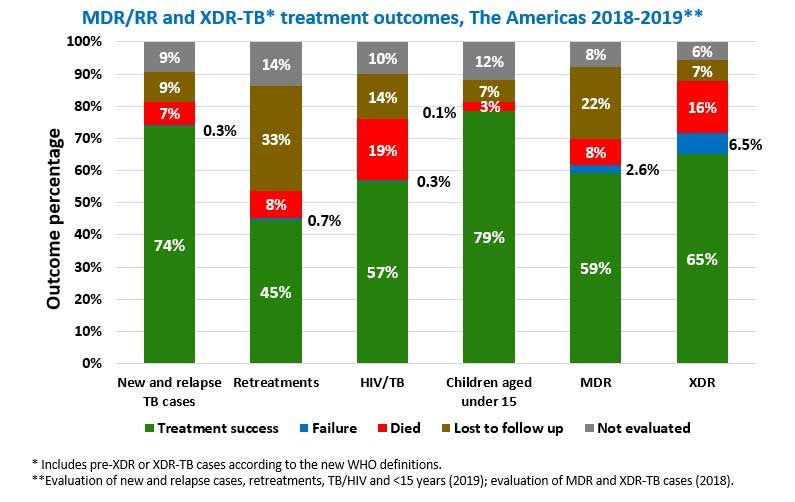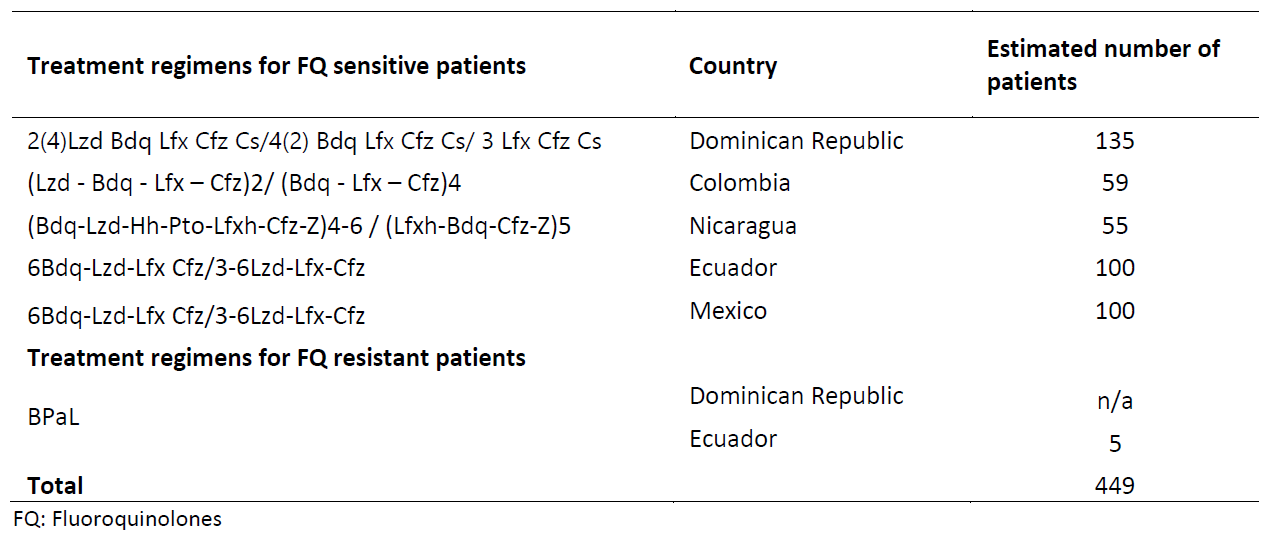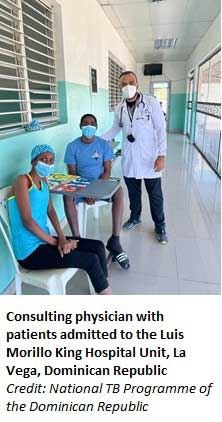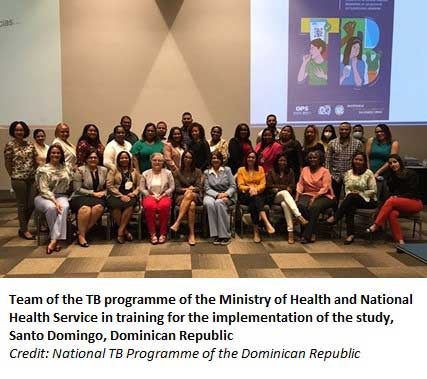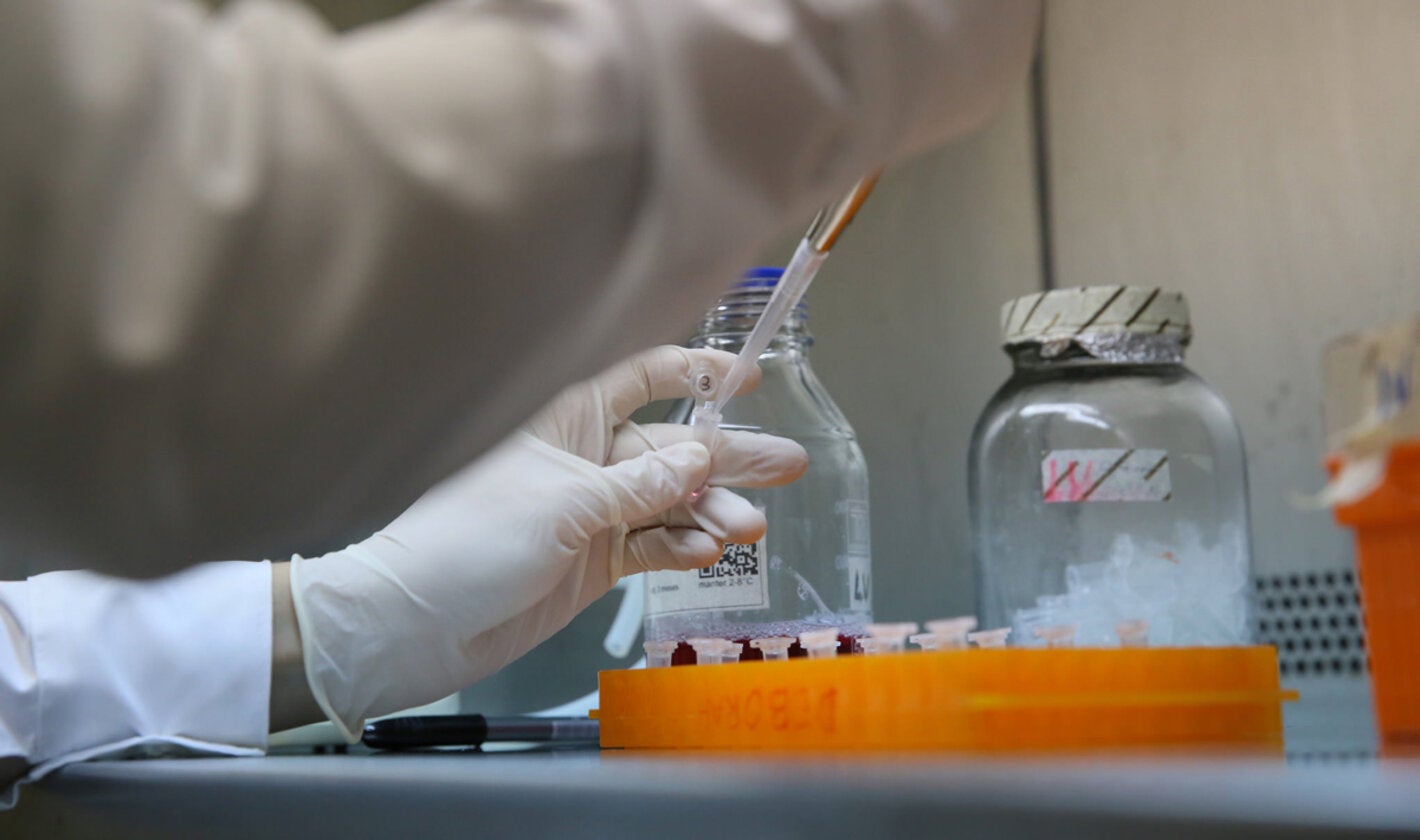
TDR, in collaboration with the Pan American Health Organization (PAHO), is supporting the national TB control programmes of Colombia, Dominican Republic, Ecuador, Mexico, and Nicaragua, which are conducting operational research studies on the effectiveness and safety of modified shorter all-oral regimens for drug-resistant TB patients.
In the latest World Health Organization (WHO) guidelines on drug-resistant tuberculosis (DR-TB) treatment, modifications to the recommended all-oral treatments for multidrug- and rifampicin-resistant (MDR/RR) TB and novel regimens for patients with extensively drug-resistant TB are encouraged under operational research conditions.
TDR, in collaboration with the WHO Global Tuberculosis Programme and technical partners, has developed the ShORRT operational research package (Short, all-Oral Regimens for Rifampicin-resistant Tuberculosis) to support the implementation of such drug regimens.
Since its official launch in Hyderabad, India, in November 2019, the ShORRT initiative is now involving and supporting 26 countries worldwide, working alongside WHO regional and country offices, academia, technical partners such as KNCV Tuberculosis Foundation, the Union and Damien Foundation, and funding agencies such as the United States Agency for International Development (USAID) and The Global Fund to Fight AIDS, Tuberculosis, and Malaria.
A total of over 4,000 patients worldwide are estimated to be enrolled in the studies that are part of the ShORRT initiative. Four broad modifications to the recommended shorter all-oral treatments for fluoroquinolones-sensitive MDR/RR-TB patients and three shorter all-oral treatments regimens for fluoroquinolones-resistant MDR/RR-TB patients are being investigated across all studies.
ShORRT in the Region of the Americas
In the Region of the Americas, Colombia, Dominican Republic, Ecuador, Mexico, and Nicaragua are among the pathfinder countries conducting operational research on the effectiveness and safety of modified shorter all-oral regimens for MDR/RR-TB patients.
TB continues to be a public health problem in the Region of the Americas. Despite a slow decline in the number of deaths in recent years, TB incidence has continued to rise slightly, and the detection gap has not narrowed, including among drug-resistant TB. Progress towards meeting the targets set by the End TB Strategy has been compounded by the COVID-19 pandemic, which has greatly jeopardized TB prevention and control interventions in every country.
WHO estimated that in 2019 there were 11,000 cases of drug-resistant tuberculosis in the Region of the Americas. Of these, less than half (45.4%) were diagnosed, and 89% started treatment. Treatment outcomes among drug-resistant patients remain poor, with a less than 60% success rate, 22% lost to follow-up, and 8% deceased.
Figure: MDR/RR and XDR-TB treatment outcomes, The Americas 2018-2019
In this context, improving TB diagnosis, treatment coverage and adherence, is a clear public health priority. For MDR/RR-TB, this also means implementing shorter, safer, and more effective all-oral drug regimens that reduce the duration of treatment, the need for daily encounters between patients and healthcare staff for injections at the health facility, and the occurrence of adverse reactions. However, the use of such treatment regimens for MDR/RR-TB is still limited in this region.
During 2020 and 2021, the national TB control programmes of Colombia, Dominican Republic, Ecuador, Mexico, and Nicaragua adapted the ShORRT research package and developed studies that aim to evaluate the effectiveness and safety of five modified bedaquiline-containing treatment regimens for patients with TB sensitive to fluoroquinolones and one novel treatment regimen comprised of 6 months of bedaquiline, pretomanid and linezolid (BPaL regimen) for patients with TB resistant to fluoroquinolones (See Table below).
In addition, the studies in Colombia and the Dominican Republic also aim to assess the impact of these novel drug regimens on the health-related quality of life of patients.
A total of about 449 patients will be recruited across the five countries.
Despite the challenges posed by the ongoing COVID-19 pandemic, the studies have been established during 2020 and 2021 through a mix of virtual sessions with the national TB programmes, PAHO and WHO/TDR teams, and technical partners such as Damien Foundation, and on-site activities. The studies in the Dominican Republic, Colombia and Ecuador have already started to recruit patients, while Mexico and Nicaragua are completing the preparatory stage.
Results on the effectiveness and safety of the novel drug regimens are expected to become available between the end of 2023 and early 2024, thus providing important new evidence for the development of the next WHO guidelines on the treatment of drug-resistant TB.
For more information, please contact:
Dr Corinne Merle (TDR/WHO) at merlec@who.int
Dr Freddy Perez (PAHO) at perezf@paho.org

